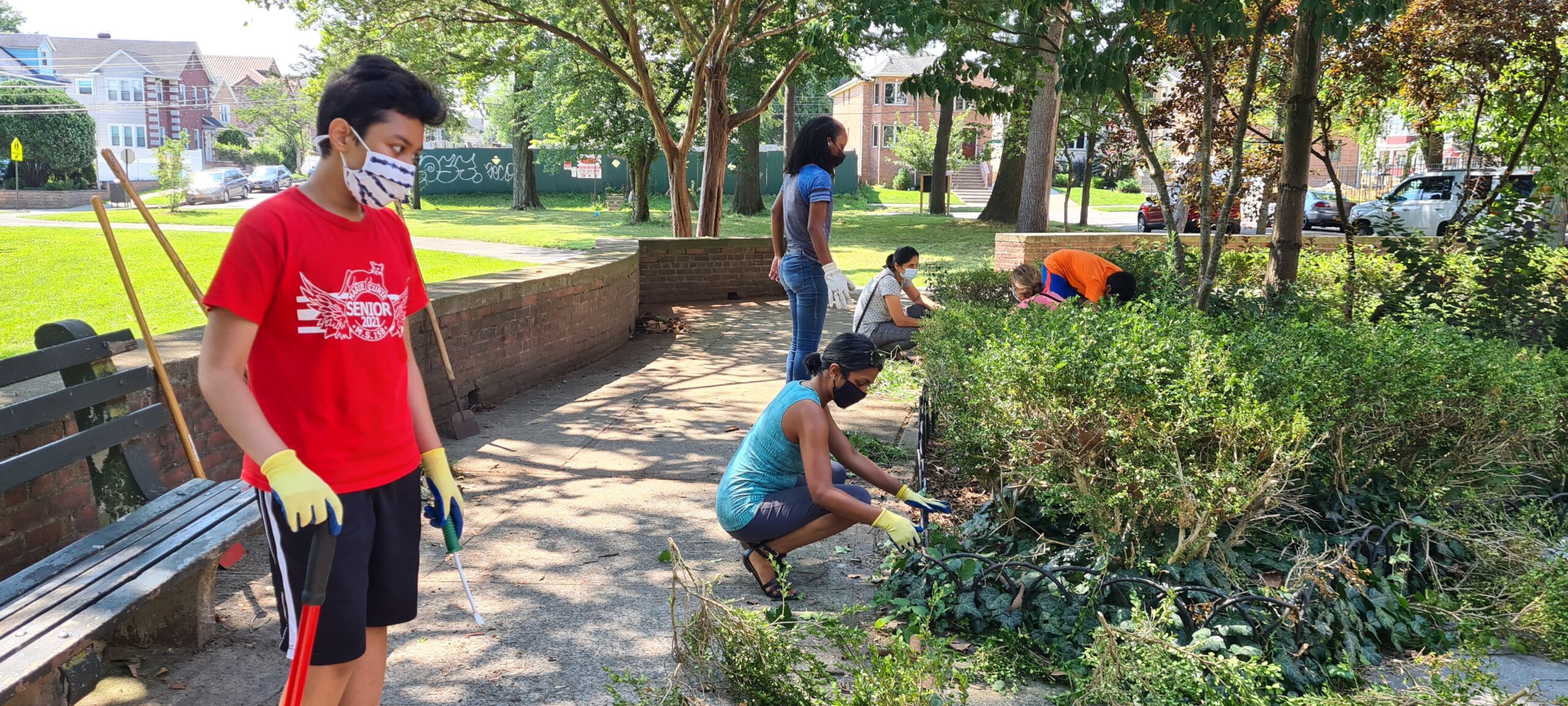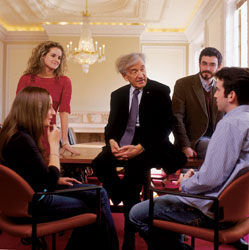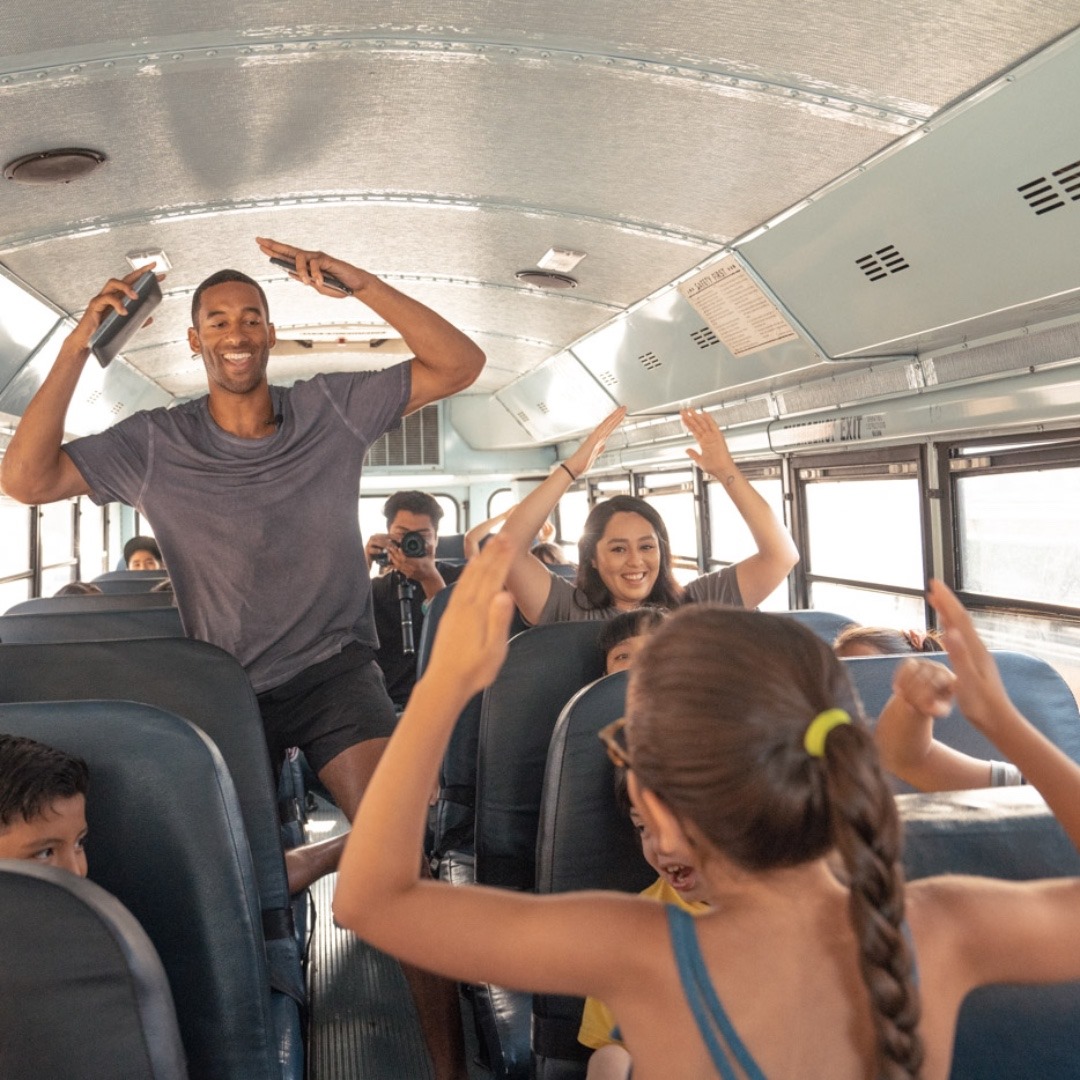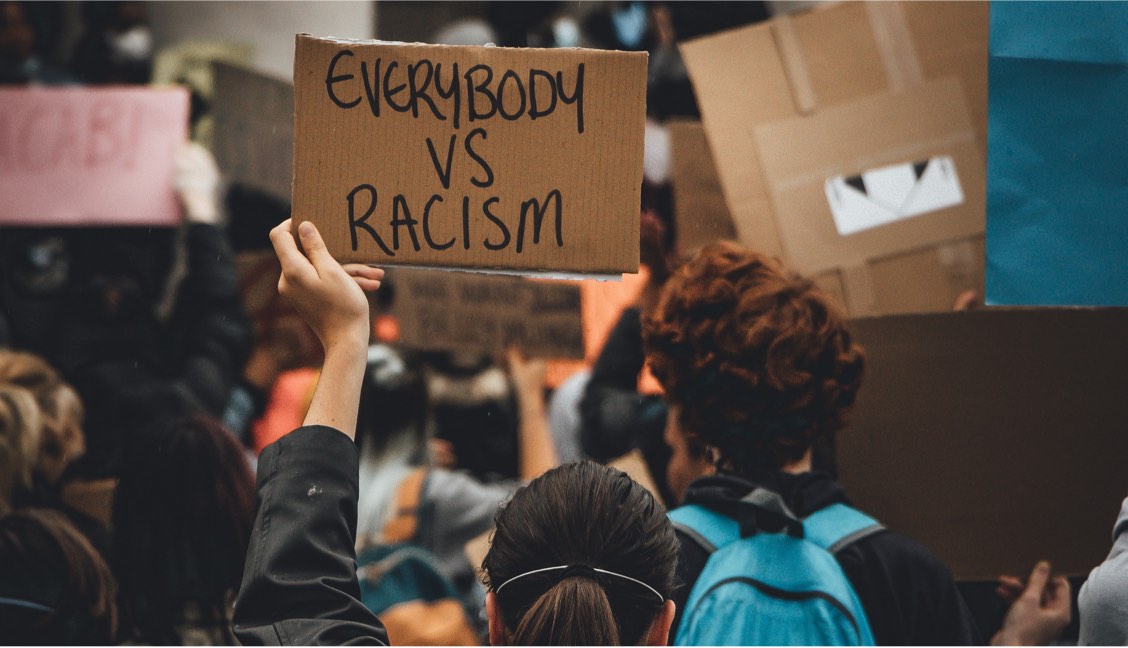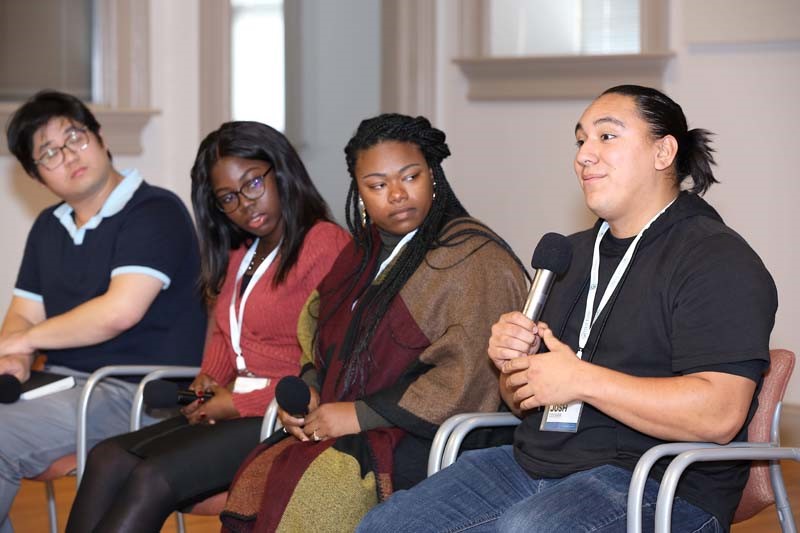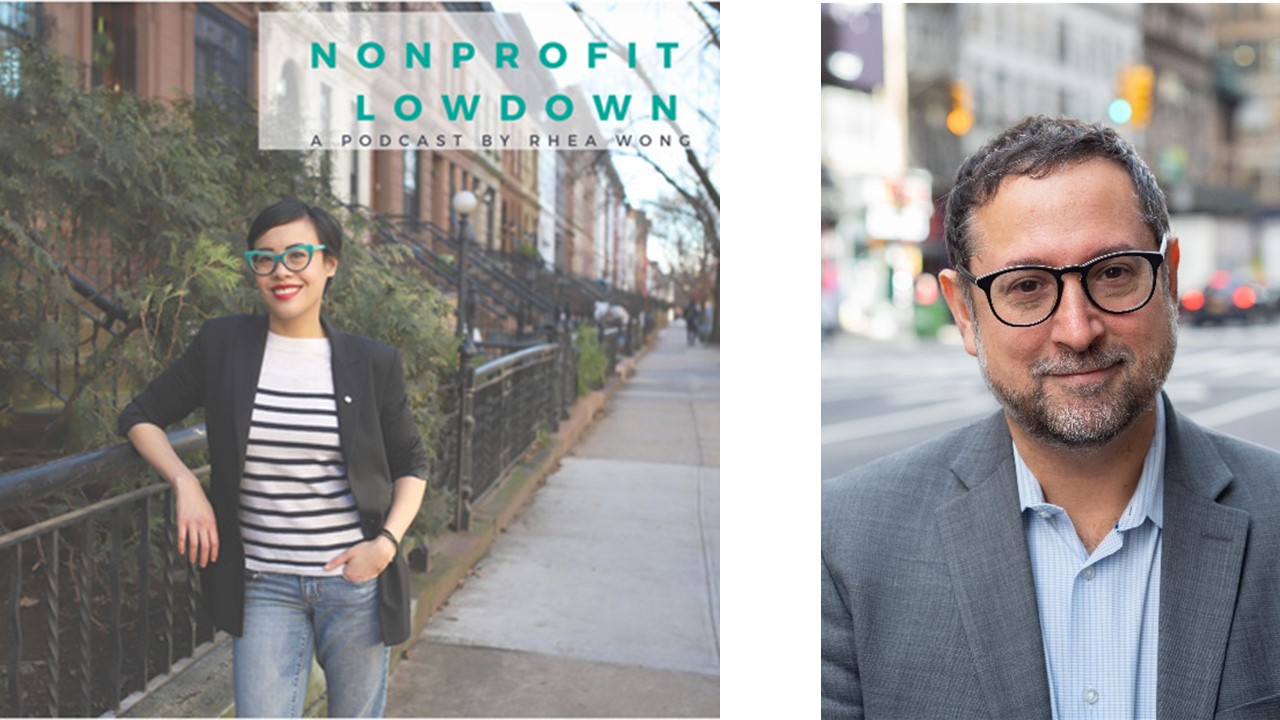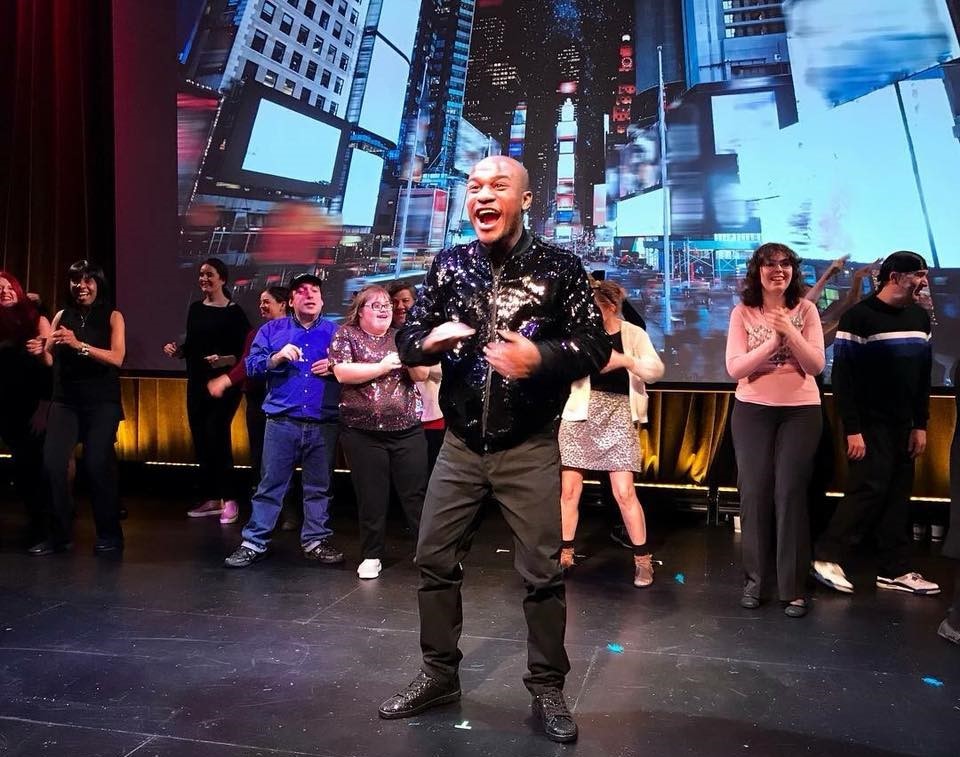FJC’s Fiscal Sponsorship Program incubates nonprofit organizations or projects that do not have their own 501(c)(3) status. In 2021, 15 new partners joined our program to tap our financial and operational expertise. Please join us in celebrating them and amplifying their charitable endeavors.
(FJC account holders take note: if you have a DAF account at FJC and wish to make a contribution to an organization currently participating in our Fiscal Sponsorship Program, simply email us to initiate the gift.)
Friends of Crocheron & John Golden Park is stewarding the 12th largest park in Queens, NYC. Monthly volunteer events focus on litter removal, planting, and trail maintenance and help to bring local park goers together. Follow Friends of Crocheron & John Golden Park on Twitter and Instagram.
DONATE HERE
TechPACT was founded by a group of impassioned technology leaders who joined together to create a direct and effective approach to address underrepresentation in the technology community, which lags behind other professional sectors for proportionate representation among Blacks, African Americans, LatinX, and women. Follow TechPACT on LinkedIn.
DONATE HERE
The Creator’s Well is designed to provide professional and personal wellness resources to Black, Indigenous and people of color (BIPOC) creative professionals.
DONATE HERE (Please include “The Creator’s Well” in the order note)
Learning Our Way Out (LOWO) promotes a grassroots community conversation methodology to help people in developing countries mobilize to reduce poverty and improve health and environmental sustainability. By training local people in facilitated dialogue techniques, LOWO encourages local participation to find innovative and lasting solutions to complex problems with genuine community ownership.
DONATE HERE
Asociacion de Asistencia Privada OSE was founded 82 years ago when a group of Jewish descendant physicians founded OSE to give medical services at no-cost to low-income individuals in Mexico City. By participating in FJC’s Fiscal Sponsorship Program, OSE can expand their funders to include US donors and foundations, greatly increasing the resources available to support its mission.
DONATE HERE (Please include “Asociacion de Asistencia Privada OSE” in the order note)
Einayich Yonim Fellowship provides Jewish high school students with the opportunity to delve into Jewish ethical ecology, to build a safe and supportive community of spiritually connected young people, to nurture self-reflection and personal growth, to foster intergenerational mentor relationships, and to help them see the profound connection between their Jewish heritage and their responsibility for the well-being of all life on earth. Follow Einayich Yonim Fellowship on Facebook.
DONATE HERE
Puszke Foundation is a Polish foundation that is utilizing FJC’s Fiscal Sponsorship Program to expand their funding opportunities in the United States. They provide financial assistance and customized aid to families in need in the Polish Jewish community.
DONATE HERE (Please include “Puszke Foundation” in the order note)
Project Canopy advances evidence-based policy making for the Congo Basin rainforest by providing environmental actors with the data, analytics and tools they need to end defaunation, deforestation, and associated carbons. Follow Project Canopy’s programming on Twitter and Facebook.
DONATE HERE (Please include “Project Canopy” in the order note)
The Park/Lex East 80th Group protects and manages New York City’s green spaces and natural areas to maximize the benefits for environmental and community health and resilience.
DONATE HERE (Please include “The Park/Lex East 80th Group” in the order note)
Press Pass NYC Press Pass NYC’s programs are all in service of helping New York City public schools start and sustain a successful school newspaper program in a comprehensive way. Unlike outside-school opportunities for individual students, Press Pass NYC’s focus is on creating journalistic value and opportunities for the entire school community and engaging students in authentic, project-based, community-centered learning that they would otherwise never experience.
DONATE HERE
NYC Fund to End Youth & Family Homelessness uses its resources and influence to transform New York City’s homelessness systems. Currently, those systems function primarily to manage the crisis of homelessness. They seek instead to prevent and end that crisis.
DONATE HERE (Please include “NYC Fund to End Youth & Family Homelessness” in the order note)
PATH Survivor Support Fund is focused on financial support for costs of care for individual survivors of sexual abuse at Phillips Exeter Academy who are in need. The expenses covered may include therapy, housing, groceries, transportation, childcare, and expenses incurred when mediating legal claims with Exeter. The intent of PSSF is to enable survivors to access funds with as few emotional impediments as possible.
DONATE HERE (Please include “PATH Survivor Support Fund” in the order note)
Journalist Trauma Support Network addresses an urgent need for mental health care for journalists impacted by occupational stress and trauma. The mission is to establish an international community of qualified therapists who are trained to provide culturally competent treatment for media professionals.
DONATE HERE
Project Shema endeavors to help the Jewish community build and scale the competence and capacity necessary to disrupt the spread of anti-Zionism and antisemitic ideas in social justice spaces. Named after the Hebrew word which means “to hear” or “listen”, Project Shema seeks to help Jewish organizations and advocates build stronger bonds of trust between the Jewish community and members of the progressive movement.
DONATE HERE (Please include “Project Shema” in the order note)
Viz for Social Good brings together passionate data professionals with mission-driven organizations to collaborate on data visualization projects to tackle critical social issues. Their volunteers create insightful dashboards and help charities to understand how data can be used to advance their missions. Follow their projects on Twitter.
DONATE HERE (Please include “Viz for Social Good” in the order note)
